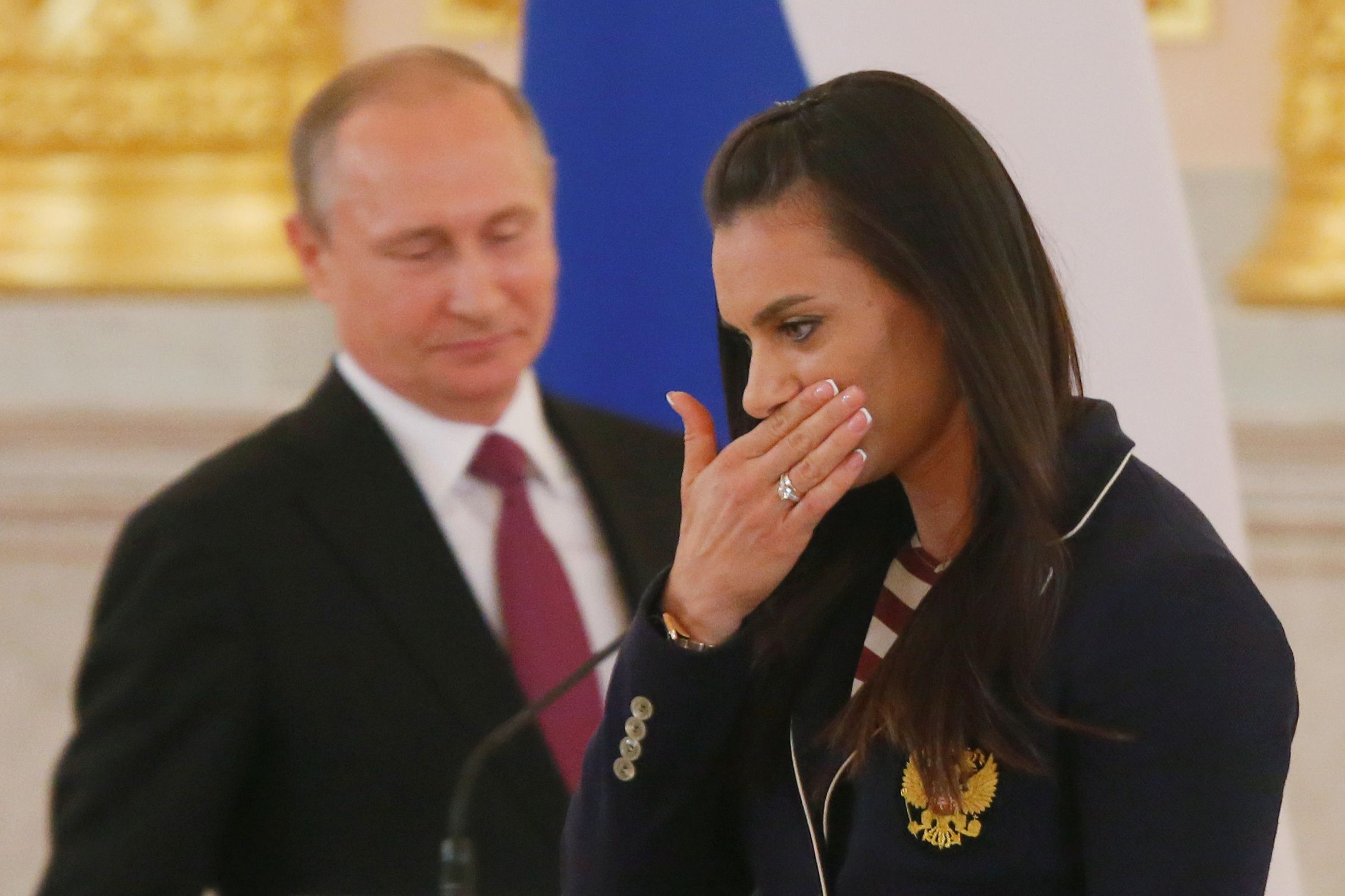
The Russian president's attempts to project his country's strength through sporting success have been dealt a huge blow.
In Lake Placid in 1980, the all-conquering USSR ice hockey team suffered a shock defeat to a group of American students in the Olympic final. With the exception of Helmuts Balderis, every member of the Soviet team was Russian. This defeat deeply wounded the pride of a nation that had long considered sporting success a demonstration of communism's superiority over capitalism.
Fast forward to 2016 and sport in Russia is still as cherished as ever, and as crucial to Russia's national image. But recent humiliations suffered by Russia in this year's European football championships and on home ice against the U.S. at the 2014 Sochi Olympics have once again cut right to the core of Russia's national pride. The damning findings of the World Anti-Doping Agency have piled on the agony.
Through sport, the USSR—and now Russia—has long promoted herself as a world heavyweight. No team reflected the USSR's sporting prowess more than its ice hockey stars who were effectively unbeatable for 40 years, their invincibility famously captured in the popular Soviet-era song "Cowards don't play Hockey." Politicians regarded the team as paragons of Soviet ideals, viewing their victories over Western opponents as Cold War triumphs. For Vladimir Putin, sport serves a similar purpose. He sees it as an emblem of Russia's dominance and strength, proof that it has emerged from the ashes of the USSR as a global player.
Using sport for political gain is neither new nor a uniquely Russian notion, but Putin's Russia is one of the world's most striking exemplars. Over $50 billion was spent on the Sochi winter games, the 2018 World Cup is estimated to cost $20 billion, while Russia is rumoured to be paying $50 million a year just for the privilege of hosting the Russian Grand Prix. These events are not intended to boost tourism, but rather to boost Russia's international standing.
However, performance on the field of play is yet to match the state's financial outlay on the events themselves. Following their country's woeful performance at Euro 2016, Russian politicians called for the national team to be disbanded; no Russian driver has come close to winning a domestic Grand Prix; and the national team crumbled once again on home ice at the 2015 World Hockey Championships.
As Russia has now suffered the ignominy of being the first nation in Olympic history to have her track and field team banned from the Olympics, despite so much effort and investment, sport in the country has reached its nadir. The most shocking revelations of late concerned the level of collusion between sporting bodies and the Russian state to encourage and cover-up doping. This meddling of politicians and members of security organs in the sport bears eerie similarities to events that preceded the humbling in Lake Placid, when the KGB ousted a winning coach, handpicking his replacement. At the Sochi games, FSB agents are suspected of having swapped the urine samples of athletes taking performance-enhancing drugs. The fact that security forces attempted to positively influence the result, shows how intertwined politics and sport remain in Russia.
Russia's exclusion from many of the Olympics' blue riband events deprives Putin of the sporting success he craves and Russia of a much-needed PR boost. There will be no footage of Yelena Isinbayeva or Sergei Litvinov draped in Russia's tri-color, as only a handful of Russian athletes will compete under the Olympic flag. The banning of 37 additional athletes across five sports suggests that the skulduggery was not limited to track and field, yet the International Olympic Committee (IOC) has held fast against vociferous calls to ban the entire Russian Olympic team.
The collapse of Russia's credibility as a sporting powerhouse both on and off the field is highly unlikely to be a factor in Putin's re-election campaign starting later this year. However, for Putin, the man who strives to guide Russia back to "great power status," having Russia so humiliated is likely to prey on his mind. The question remains as to whether he will encourage his athletes to compete clean or cheat better.
Septimus Knox is an analyst at business intelligence consultancy Alaco.
Uncommon Knowledge
Newsweek is committed to challenging conventional wisdom and finding connections in the search for common ground.
Newsweek is committed to challenging conventional wisdom and finding connections in the search for common ground.
About the writer
To read how Newsweek uses AI as a newsroom tool, Click here.








